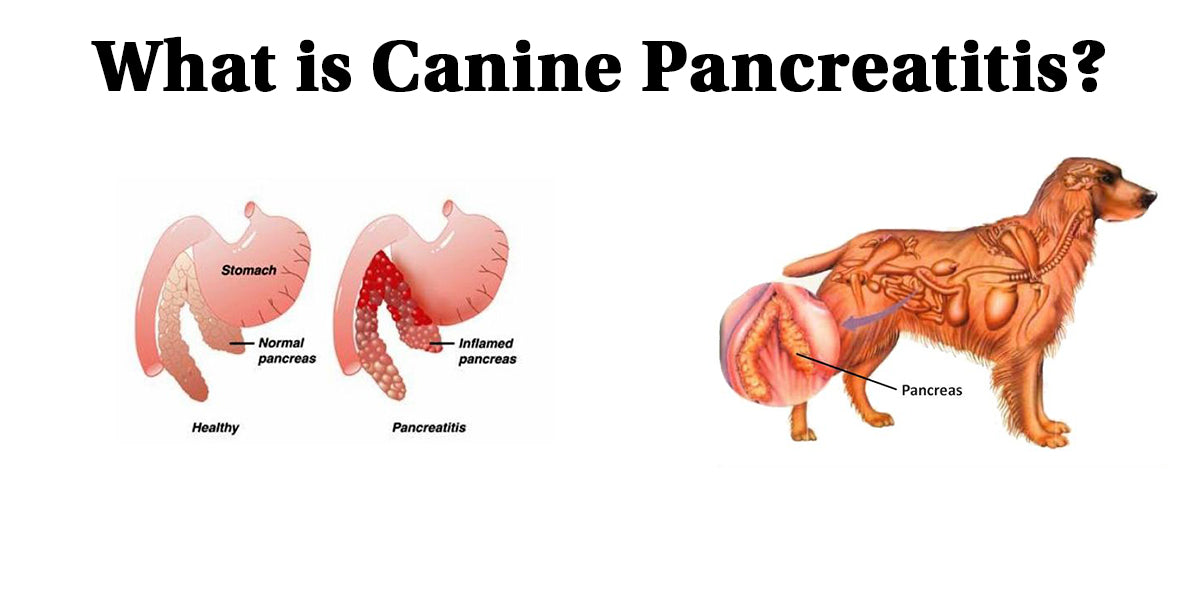Introduction:
Chronic pancreatitis in dogs is a complex and debilitating condition characterized by long-term inflammation of the pancreas. In this comprehensive article, we will delve into the causes, symptoms, diagnosis, treatment options, and management strategies for chronic pancreatitis in dogs. By understanding this condition and its management, dog owners and veterinarians can work together to improve the quality of life for dogs affected by chronic pancreatitis.
Causes of Chronic Pancreatitis in Dogs:
Chronic pancreatitis in dogs can have various underlying causes, and it is often challenging to pinpoint a single trigger. However, research suggests that certain factors may contribute to the development of this condition. These factors include:
- Diet:
High-fat diets and frequent consumption of table scraps have been associated with an increased risk of chronic pancreatitis in dogs.
- Breed Predisposition:
Certain breeds, such as Miniature Schnauzers, Cocker Spaniels, and Yorkshire Terriers, have a higher predisposition to developing chronic pancreatitis.
- Gallbladder Disease:
Gallbladder disease, such as gallstones or inflammation, can lead to pancreatic inflammation and the development of chronic pancreatitis.
- Trauma or Injury:
Previous trauma or injury to the pancreas can increase the likelihood of chronic pancreatitis.
Recommended:
- Petco Review: The Power of Together
- PetSmart Review: Where Pets Inspire Us
- Hill’s Pet Nutrition Review: Pioneering Pet Health and Nutrition
- Royal Canine Review: Tailored Nutrition for Every Pet
- Chewy Review: Pet Care at Your Doorstep
Recognizing the Symptoms:
Identifying the symptoms of chronic pancreatitis in dogs is crucial for early detection and intervention. Common signs include:
- Gastrointestinal Distress:
Dogs with chronic pancreatitis may experience recurring episodes of vomiting, diarrhea, and abdominal pain.
- Loss of Appetite:
A decreased appetite or reluctance to eat is a common symptom of chronic pancreatitis.
- Weight Loss:
Unexplained weight loss is often observed in dogs with chronic pancreatitis due to reduced food intake and malabsorption.
- Lethargy and Weakness:
Dogs affected by chronic pancreatitis may exhibit general lethargy, weakness, and a lack of energy.
Diagnosing Chronic Pancreatitis in Dogs:
Diagnosing chronic pancreatitis in dogs can be challenging, as there is no single definitive test. However, veterinarians may use a combination of diagnostic tools and procedures to reach a diagnosis. These include:
- Blood Tests:
Bloodwork, such as a complete blood count and serum biochemistry panel, can provide valuable insights into pancreatic enzyme levels and overall health.
- Imaging Techniques:
Ultrasound or radiographic imaging may be used to visualize the pancreas and detect abnormalities such as inflammation or structural changes.
- Pancreatic Biopsy:
In some cases, a biopsy of the pancreas may be necessary to confirm the diagnosis and assess the severity of the inflammation.
Treatment Options for Chronic Pancreatitis in Dogs:
The treatment of chronic pancreatitis in dogs aims to alleviate symptoms, manage pain, and improve the dog’s overall well-being. Here are common approaches:
- Dietary Management:
A low-fat, easily digestible diet is often recommended for dogs with chronic pancreatitis to reduce pancreatic stimulation and inflammation.
- Medications:
Veterinarians may prescribe medications such as pain relievers, anti-nausea drugs, and pancreatic enzyme supplements to manage symptoms and support digestion.
- Fluid Therapy:
In cases of dehydration or severe illness, fluid therapy may be necessary to restore hydration and maintain electrolyte balance.
- Supportive Care:
Providing a stress-free environment, maintaining a consistent feeding schedule, and monitoring the dog’s weight and appetite are essential for managing chronic pancreatitis.
Managing Chronic Pancreatitis in Dogs:
Managing chronic pancreatitis in dogs involves long-term care and attention to prevent flare-ups and manage symptoms. Here are some additional strategies:
- Weight Management:
Maintaining a healthy weight through portion control and regular exercise can help reduce the risk of pancreatitis episodes.
- Avoidance of High-Fat Foods:
Strictly avoiding high-fat foods, including table scraps and fatty treats, is crucial to prevent exacerbation of symptoms.
- Regular Veterinary Check-ups:
Routine check-ups allow for monitoring of the dog’s condition, adjustment of treatment plans, and early detection of any complications.
- Stress Reduction:
Minimizing stressors in the dog’s environment can help reduce the risk of pancreatitis episodes and improve overall well-being.
Conclusion:
Chronic pancreatitis in dogs is a complex condition that requires careful management to improve the quality of life for affected dogs. By recognizing the causes, symptoms, and treatment options discussed in this article, dog owners and veterinarians can work together to provide the best possible care. Early detection, appropriate treatment, dietary management, and long-term monitoring are crucial for effectively managing chronic pancreatitis in dogs.
References:
- Xenoulis, P. G. (2015). Diagnosis of pancreatitis in dogs and cats. Journal of Small Animal Practice, 56(1), 13-26.
- Steiner, J. M. (2018). Diagnosis of pancreatitis in dogs and cats. Veterinary Clinics: Small Animal Practice, 48(2), 221-237.
- Hess, R. S. (2015). Clinical aspects of canine pancreatitis. Journal of Small Animal Practice, 56(1), 3-12.
- Watson, P. J., & Roulois, A. J. (2014). Chronic pancreatitis in dogs. Journal of Veterinary Internal Medicine, 28(2), 352-366.




